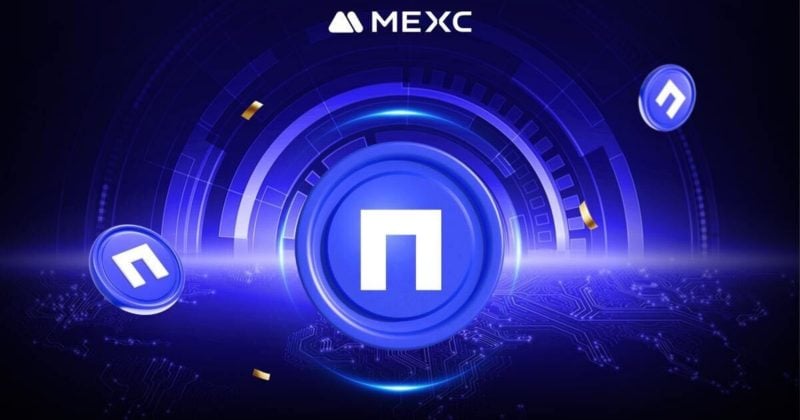Expect AI To Revolutionize Pool Maintenance In The Years To Come

Joe Trusty is the Editor of Pool Magazine and a leading voice in the pool and spa industry.
Artificial intelligence (AI) is transforming industries across the board, and the pool industry is no exception. While swimming pool maintenance may seem like a traditional sector, advancements in AI-driven technology are making a significant impact in areas such as routine service, predictive maintenance, pool safety and pool construction. The integration of AI into these aspects has already begun revolutionizing the efficiency, safety and precision of pool-related businesses.
To better understand how AI is shaping the future of the pool industry, I’ve been at the very forefront of discussions on this topic. Recently, at an annual leadership conference, I had the opportunity to address hundreds of pool professionals about how AI will impact the industry in the coming years. More recently, I led a seminar where I addressed many questions and concerns about AI adopting a larger role in pool service, maintenance, and construction.
The most common concern pool professionals had about AI was whether it would replace their jobs. Many in the industry are worried that automation and AI-driven diagnostics would eliminate the need for skilled technicians and builders. When you stop and consider it, it is a pretty legitimate concern. The good news, at least for the pool and spa industry, is that in the coming decades, the impact is likely to be negligible. Point of fact, a recent article in the Financial Times suggests (paywall) that employment related to excavation, service, cleaning and repair sectors are likely to go largely unscathed in the next decade.
Predictive Maintenance And Real-Time Equipment Monitoring
I find one of the most exciting AI applications in the pool industry to be predictive maintenance. Rather than reacting to pool equipment failures, AI will soon be able to allow professionals to anticipate and prevent issues before they occur. By leveraging IoT (Internet of Things) sensors, AI can monitor pool pumps, filters, heaters and chlorinators in real time, analyzing data to detect anomalies that indicate potential failures.
Future AI-driven systems will send real-time alerts to pool professionals about exactly what is happening on the pool equipment pad. Instead of simply notifying a technician that a pump has failed, AI will be able to diagnose whether it’s a clogged impeller, a failing capacitor, or a voltage issue–saving time and reducing unnecessary service calls. Leading manufacturers like Hayward, Pentair and Fluidra are already putting millions of research and development dollars into seeing how AI can interplay with their automation systems, and this technology is expected to become even more advanced in the coming years.
AI In Pool Safety: Smarter Cameras And Alarms
Safety has always been a top priority in the pool industry, and AI is playing a pivotal role in creating safer swimming environments. AI-powered camera systems like CamerEye use machine learning to detect motion patterns and identify potential drowning risks. Unlike traditional security cameras, AI-driven pool alarms can differentiate between normal swimming activity and distress situations, triggering immediate alerts to pool owners and lifeguards.
AI is also making its way into alarm systems that go beyond simple motion detection. Smart alarms will be able to analyze sound waves to detect signs of distress, such as splashing or yelling, and differentiate them from everyday pool activity. This advancement can be crucial in reducing false alarms while improving the response time in actual emergencies.
AI’s Impact On Pool Construction
AI-powered tools are improving the design, measurement and installation processes, making pool construction faster and more precise. One innovative development in this space is an AI-driven robot capable of tying rebar. In the pool construction world, rebar reinforcement is a crucial step in building durable concrete pools. Automating this process would reduce labor costs, minimize errors and speed up construction timelines.
Manufacturers are beginning to embrace AI as a point of differentiation. Latham, one of the leading manufacturers of fiberglass and vinyl liner pools, has introduced AI-powered measurement technology that uses AI to generate highly accurate measurements of a backyard, ensuring a perfect fit for the pool and eliminating inefficiencies to allow contractors to expedite the planning and installation process while improving accuracy.
Adapting To A Changing Poolscape
One of the biggest hurdles for pool service companies isn’t the technology itself—it’s getting buy-in from staff and technicians to adopt AI in their processes and procedures. Change can be difficult, and many experienced professionals may resist new AI-driven tools simply because they’re used to their existing methods. The adage “you can’t teach an old dog new tricks” applies here, and overcoming this resistance will require a shift in mindset.
Focus on demonstrating how AI makes your teams’ jobs easier, rather than positioning it as a replacement for skilled labor. Remind them that AI isn’t here to take jobs but to improve efficiency and allow technicians to focus on more skilled aspects of pool service.
For instance, AI is already optimizing pool service routes as companies leverage it to enhance scheduling, reduce fuel costs and improve response times. AI-powered dispatch systems can analyze traffic patterns, customer urgency and service history to ensure technicians are routed as efficiently as possible.
Another immediate AI application to consider is customer service automation. AI chatbots and virtual assistants can handle appointment scheduling, answer common customer questions and even send maintenance reminders—freeing up valuable time for service teams to focus on on-site tasks.
Conclusion
I believe the pool industry stands at the threshold of a new era—one where AI enhances efficiency, safety and precision without replacing the invaluable expertise of pool professionals. While automation may shift certain tasks, the heart of the industry remains hands-on, built on service, craftsmanship and customer relationships.
As AI continues to evolve, I expect that those who embrace it as a tool rather than a threat will be the ones leading the way. Pool professionals who integrate AI into their workflows will not only future-proof their businesses but also elevate the quality of service they provide. Instead of fearing change, the industry should welcome innovation, using AI to unlock new levels of operational excellence.
At the end of the day, AI isn’t here to take jobs—it’s here to make the industry smarter, safer and more efficient. And for those willing to adapt, the opportunities ahead are as deep as the pools they service.
Forbes Business Council is the foremost growth and networking organization for business owners and leaders. Do I qualify?
link







